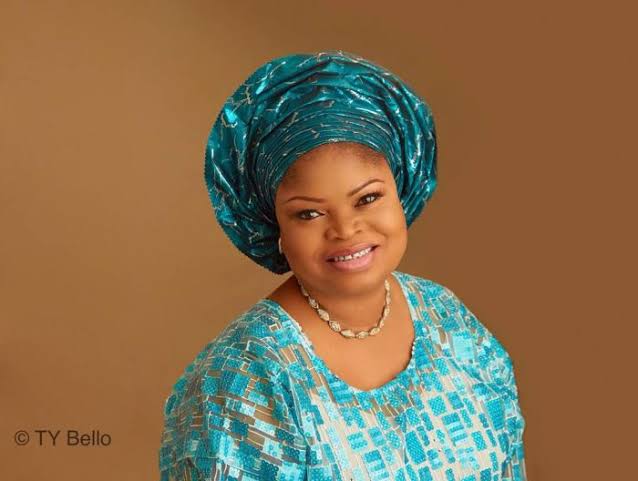By Abdulateeef Bamgbose
As Nigeria continues regional consultations on the 2025 Voluntary National Review, VNR, Senior Special Assistant to the President on Sustainable Development Goals, SSAP-SDGs, Princess Adejoke Orelope-Adefulire, has emphasised the need for stakeholders to intensify efforts towards the achievement of SDGs by 2030.
She stated this in a keynote address delivered on her behalf by Dr Bala Yunusa at the North East Regional Consultation in Gombe, as part of Nigeria’s VNR preparation for the High-Level Political Forum in New York in July.
The SSAP-SDGs noted that world leaders established the High-Level Political Forum, HLPF, on Sustainable Development through the United Nations Economic and Social Council, ECOSOC, as a follow up and review mechanism for the 2030 Agenda for sustainable development.
VNRs serve as the cornerstone of this review process. Nigeria is currently undertaking its third VNR, engaging stakeholders across the six geopolitical zones to assess implementation progress, challenges and prospects.
In a statement by her Special Assistant on Media and Strategic Communication, Desmond Utomwen, the SSAP-SDGs stressed the need to reverse the trend and fast-track progress on all SDGs.
She noted that global progress on SDGs is mixed, with Nigeria not exempted. Citing the 2024 United Nations Sustainable Development Goals Report, she stated that “lack of progress towards SDGs is universal, but developing countries and the world’s poorest people bear the brunt. Currently, only 17 percent of SDG targets are on track, nearly half show minimal or moderate progress, while over a third have stalled or regressed.”
At the national level, dwindling financial resources, COVID-19 pandemic and persistent insecurity have combined to slow-down Nigeria’s progress towards achieving the SDGs.
Princess Orelope-Adefulire emphasised that SDGs cannot be achieved through isolated programmes, but must be carefully integrated into national and sub-national policies and development plans. Robust Monitoring, Evaluation, and Reporting, MER, such as the SDGs Progress reporting and VNR, are essential. She underscored the need for collaboration across the public and private sectors, UN Development System, tdonor community, academia, and the civil society to ensure that no one is left behind.
While referencing the ‘Pact for the Future,’ adopted during the 79th Session of the United Nations General Assembly, UNGA, in September, she noted that through ‘Pact’, world leaders have reaffirmed their commitment to take “bold, ambitious, accelerated, just and transformative actions to fast-track the achievement of SDGs.”
Quoting the UN Secretary-General, António Guterres as calling for “massive investment, more effective partnerships are needed to drive critical transitions across food, energy, digital connectivity and more, unlocking progress across the Goals. The 2024 Summit of the Future provides a vital opportunity, paving the way for further breakthroughs at the Financing for Development Conference and World Social Summit in 2025.”
Princess Orelope-Adefulire commended institutional members of the Multi-Stakeholder Core Working Group for Nigeria’s 2025 VNR for their dedication in organising and guiding the entire VNR process. “I appreciate and commend members of the Core Working Group from relevant Ministries, Departments and Agencies, MDAs, UN Development System, Private Sector Advisory Group, Civil Society Strategy Group and the academia. Your commitment is highly valued. The consulting team for this VNR is equally appreciated,” she concluded.
In a presentation on the Overview of SDGs Implementation in Nigeria & 2025 VNR Process, Dr Yunusa, referencing the UN DESA Report of 2024, highlighted the impact of COVID-19 pandemic, escalating conflicts, geopolitical tensions and climate chaos on SDGs progress. According to the report, if current trends persist, about 590 million people may still live in extreme poverty by 2030. Without substantial acceleration in poverty reduction, fewer than three in 10 countries will halve national poverty, while nearly one in 10 people globally will face hunger and 2.4 billion people will experience moderate to severe food insecurity.
As part of Nigeria’s VNR consultative process, about 150 participants drawn from the six states of the North East were updated on the institutional frameworks for the implementation of the SDGs; progress on the 17 SDGs; implementation challenges and lessons learnt. At the end of the regional consultation, participants reflected on these and offered context specific recommendations and implementation strategies to fast-track the achievement of the SDGs by 2030.
Key stakeholders, including representatives of MDAs, organised private sector; civil society; academia; persons with disabilities; and youths were in attendance.
In his welcome address, the Focal Person of the SDGs Project Support Unit in Gombe State, Engr Sulaiman Turaki described the regional consultation as a critical dialogue that will shape Nigeria’s next Voluntary National Review, while ensuring that its progress, challenges and opportunities are accurately reflected and that no one is left behind in the overall development journey.
He called on stakeholders to engage actively, share insights and propose solutions that will make a real impact.





